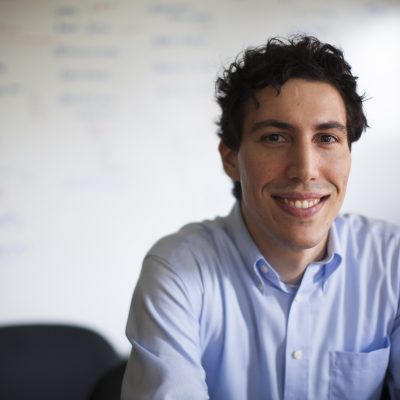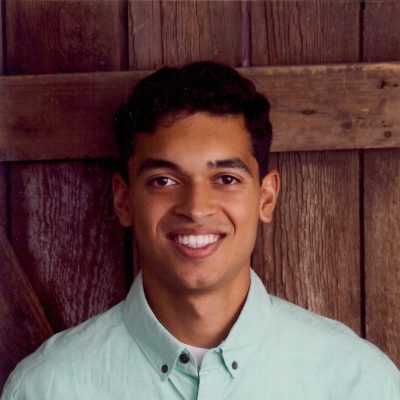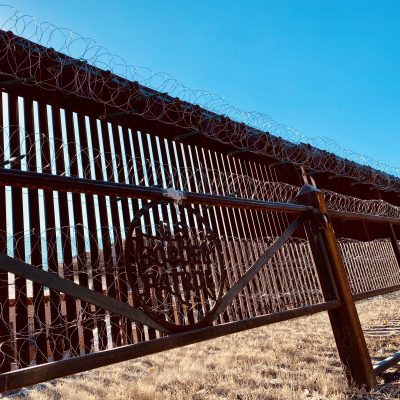Details
Article
Last week, U.S. Citizenship and Immigration Services (USCIS) began implementing its “inadmissibility on public charge grounds” rule, creating a new wealth test for immigrants—effectively putting a price on eligibility for U.S. citizenship. This new rule is a betrayal of the idea that anybody who works hard can make it in this country. In its implementation we betray not only immigrants seeking a new life here and those who came before them—we also betray ourselves and the values we have claimed to espouse since our founding. We have always aspired to the notion that regardless of race, creed, or origin, anyone who works hard can make it in America. As a legal aid attorney, I work to help indigent people to be able to fight for this dream every day, but I first understood the meaning of this dream because of my family.
When the Soviet press claimed in the Watergate years that the United States presidency was crumbling under Nixon, my grandmother, living in Moscow, saw in America instead a democratic system where people could keep their leaders accountable, unlike the dictatorship in which she lived. My grandfather saw in the United States a country where his grandchildren could grow up without fearing a knock on the door in the middle of the night that would take him to a grave or to a Gulag, or to a grave in a Gulag, as had happened to his own grandfather under Stalin.
My grandfather saw in the United States a country where his grandchildren could grow up without fearing a knock on the door in the middle of the night that would take him to a grave or to a Gulag, or to a grave in a Gulag, as had happened to his own grandfather under Stalin.
With nothing but dreams of freedom and opportunity for my father and his sister, my grandparents left Moscow in 1977. They began a long voyage through Europe and eventually settled in Concord, Massachusetts, where two centuries before a group of farmers had begun an American Revolution to free themselves from tyranny. Like those farmers and the Framers, my grandparents wanted to live in a country where they and their children would be free.
“They fled a country without rule of law and have lived to see their grandson join a profession called to uphold it.”
Their long journey wasn’t easy, and the difficulties didn’t end once they reached America. They were broke and anxious at first and had to struggle to make a life for themselves in this new country. But eventually, along with other political refugees, my father and my grandparents were naturalized in Boston’s Faneuil Hall, the Cradle of Liberty, and they took their first breaths as Americans in the same place where decades later I would take my first breaths as an attorney. They fled a country without rule of law and have lived to see their grandson join a profession called to uphold it.
To become citizens they also swear an oath of allegiance and pass a test of civic knowledge that most Americans would fail. And yet our immigration policies have become a far cry from the Statue of Liberty’s plea to “give me your tired, your poor, your huddled masses yearning to breathe free.”
I did not have to go through the difficulties they did to become American; I was born here. Newly arriving immigrants courageously face the challenges of traveling from afar, learning a new language, and having to make ends meet in an unknown environment. To become citizens they also swear an oath of allegiance and pass a test of civic knowledge that most Americans would fail. And yet our immigration policies have become a far cry from the Statue of Liberty’s plea to “give me your tired, your poor, your huddled masses yearning to breathe free.” Over the years since our founding, a Dream available at first to few became available to many more, as we came closer and closer to a promise of opportunity that was fulfilled for people like my grandparents. But we are reneging on this promise.
Although it is not the first of its kind, this new “public charge” rule will allow the government to deny permanent resident status to immigrants purportedly likely to rely on public benefits over the course of a year, and it is still unclear how this likelihood will be determined. My grandparents and their teenage children might have become “public charges” at first were it not for the help of the Hebrew Immigrant Aid Society (HIAS) and the Jewish Family Service, which provided support until they were able to stand on their own two feet.
“I have met with detainees facing court hearings in immigration court without representation or even the time to gather the evidence they need to prove they came here fleeing persecution on political, religious, or ethnic grounds. They have given up more than most for the privilege of living in this country, leaving everyone and everything behind them.”
As an attorney, I have met with detainees facing court hearings in immigration court without representation or even the time to gather the evidence they need to prove they came here fleeing persecution on political, religious, or ethnic grounds. They have given up more than most for the privilege of living in this country, leaving everyone and everything behind them. I want them to be able to see America as my grandparents and my father did, as a country that will give them freedom and a pathway to citizenship so they may contribute here. Beyond just considering the multiplier effects that investing in them could have on our children, grandchildren, and the life of our nation, we should consider the impact on our sense of who we are and what we represent.
“Beyond just considering the multiplier effects that investing in them could have on our children, grandchildren, and the life of our nation, we should consider the impact on our sense of who we are and what we represent.”
The real “public charge” is this one: we are charged with deciding whether we still believe what we have professed to believe, what our paramount monument to liberty describes. Beyond that our charge now is to show we will not be complicit with a system that unjustly incarcerates patriotic would-be Americans and their children—it is a charge that those of us who believe in America must respond to, in the legislatures and in the courts.





